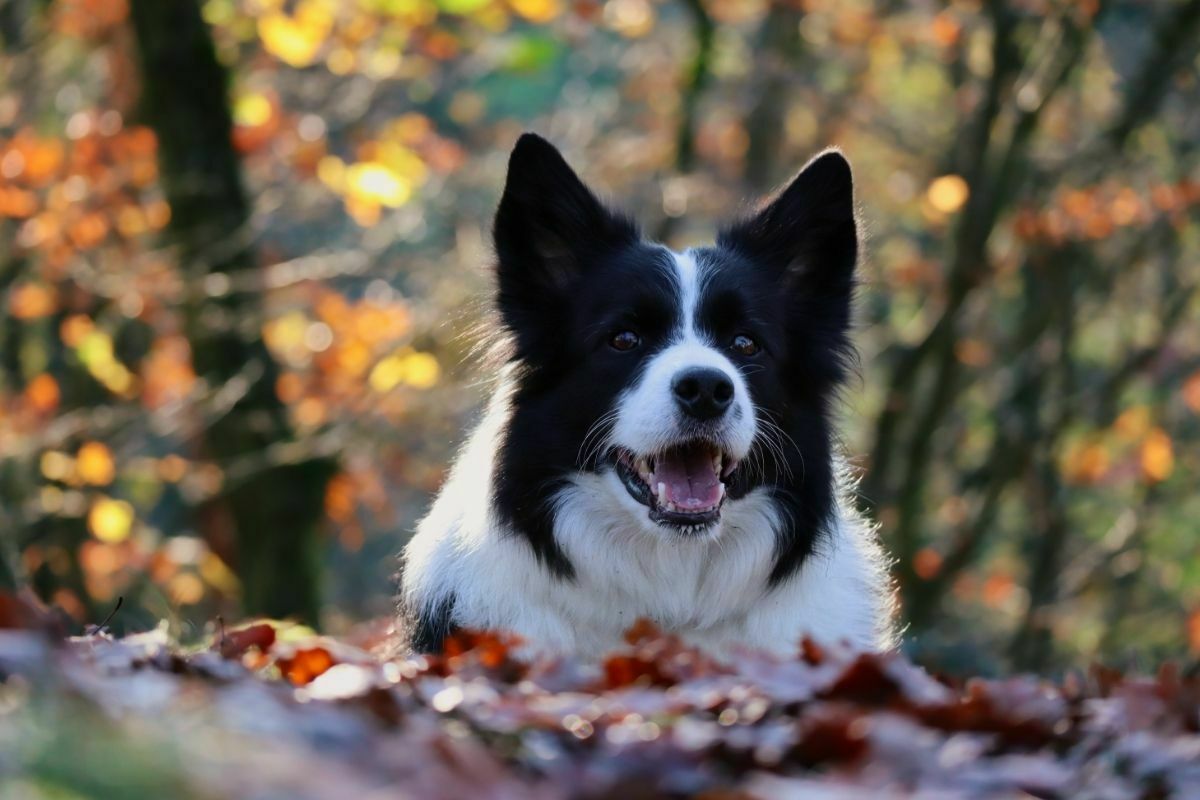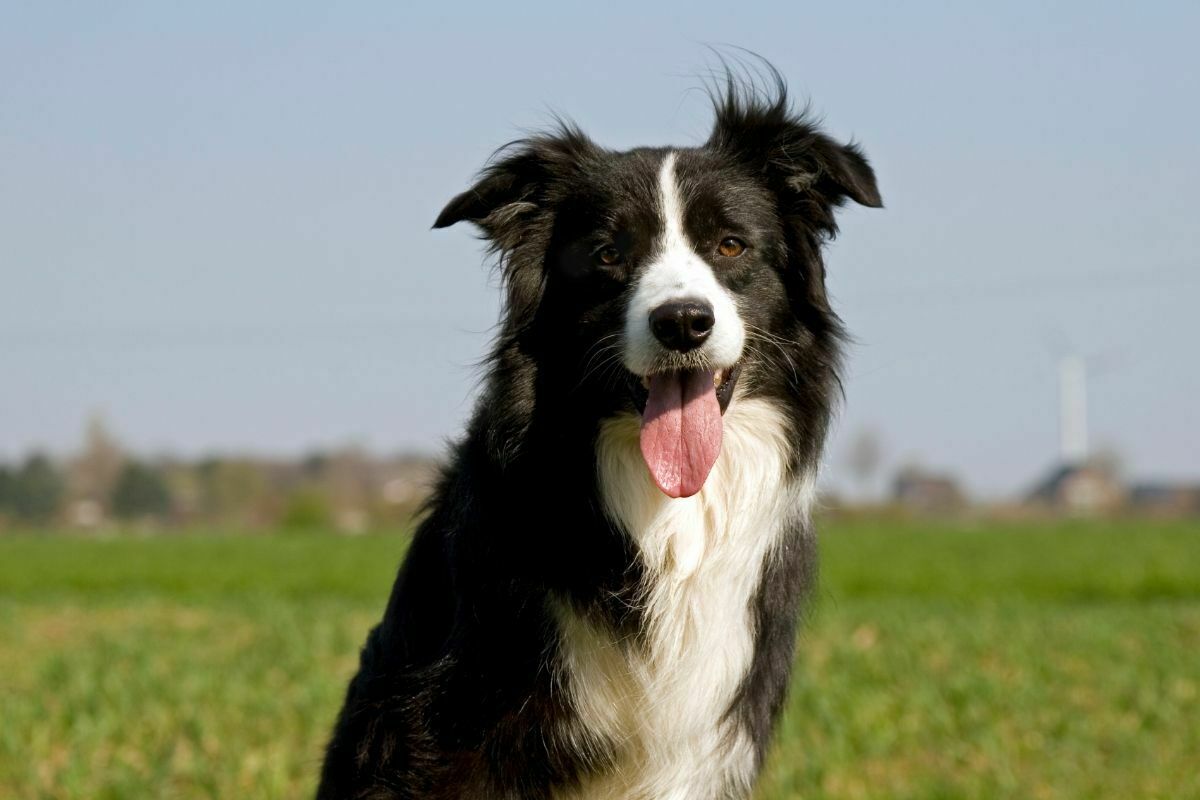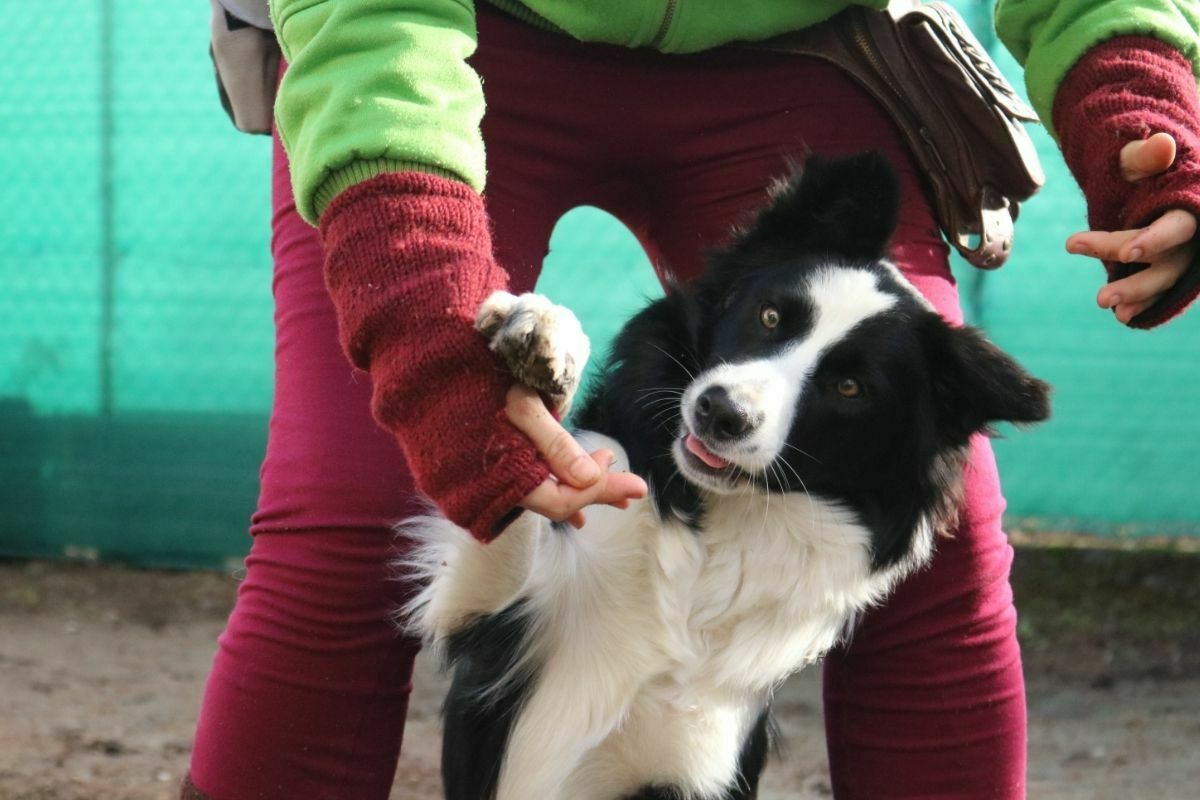The breed of dog known as the border collie has long been considered a favorite pet among families because of its friendly nature and intelligence. This type of dog is also known to be very loyal and protective.

However, you may be wondering if this breed of dog is hypoallergenic. In this article, we will discuss whether border collies are hypoallergenic.
What Is A Hypoallergenic Dog?
A hypoallergenic breed of dog is one that does not cause any adverse reaction in people with sensitive skin. In other words, it means that they do not produce any allergen when they come into contact with certain substances.
Dogs are very loving creatures; however, if you’re allergic to dogs, you may need to avoid them because they can bring allergens into your house.
The hair of the dog and fur, which contains proteins, triggers an allergic reaction. These proteins are also found in the dog’s saliva and urine.
As a result, if you want a dog, you want one where coats rarely shed, so they don’t introduce allergens into their homes.
Border Collies Coat

Border Collies are usually a mixture of different breeds, including the standard poodle. Their coats are held together by interlocking curls of their fur.
Border Collies are also called border collies because they were bred to work along borders. They have a strong desire to please and are often used for herding livestock.
The coat of a border collie consists of three layers: outer coat, undercoat, and guard hairs. The overcoat is made up of flat, overlapping scales.
The undercoat is soft and dense, while the guard hairs are longer than those found on most other breeds.
This is because their coat must withstand wind, rain, and cold temperatures while working. The coarse outer coat and fluffy undercoat help keep the rain off the dog and retain their warmth.
There are two varieties when it comes to a Border Collie’s coat. You can either have a more sleek coat, which will hang straight down.
Or there is a rough coat that will have much more volume. However, the rough coat is known to shed a lot more out of the two coats.
Although, both are known to shed, which is an issue for anyone with a dog allergy. This is because, as we have established above, the shedding of the hair causes an allergic reaction in someone.
As a result, border collies are not hypoallergenic.
How Much Hair Does A Border Collie Shed?
Border Collies, like any dog, will lose a bit of dog hair every day. This is a natural process that helps keep your dog’s coat healthy and shiny.
Although, an issue that Border Collies find is that every year when the temperature rises, this type of dog will shed its winter coat for a summer coat. This is why it is important to brush your dog regularly to help prevent the build-up of dead hair.
It is also essential to remember that even though a dog sheds, it doesn’t mean that they are dirty. If you notice that your dog looks dull and unkempt, it is time to give him a bath.
However, when it is time for a new coat, that is a huge issue for anyone who is allergic to dog hair.
This is because lots of hair will be shed, which will go everywhere. Border Collies will just suddenly start to shed their hair excessively.
When a Border Collie is shedding, you need to brush their coat more often and clean up their air more often.
Living With A Border Collie

Dog lovers should know that Border Collies aren’t hypoallergenic dogs. Their coats are full of allergens; as a result, if you really want a Border Collie, there are a few tips to make your life easier.
If you have allergies, you need to groom your dog regularly, even once a day during shedding season.
You can use gloves to avoid getting scratched by fur, although there are other ways to do this if you’re allergic to dog fur.
There are special brushes made for brushing out dog hair, and there are even special rakes designed to remove dog fur without scratching you.
Dogs need to be cleaned regularly to avoid hiding allergens in their hair. Vacuuming helps get rid of loose hair and dirt, but a pet-specific vacuum cleaner with a HEPA filter is better than regular vacuums because it sucks up particles as well as dust. This will help you to stop physically touching their hair.
Throwing blankets over furniture keeps dogs off couches and chairs where they might sleep. Wash throw blankets and couch cushions frequently in hot water. Choose machine-washable dog beds or crates to help clean up after your dog.
Change your HVAC system’s air filters to their recommended frequency. Dogs should be kept away from bedrooms because they can cause allergic reactions, which could cause you a restless night.
Smooth floors are better than carpets for dogs’ health. Sweeping and vacuuming regularly keep dog hair off floor surfaces. Whilst also taking medications, which are helpful for keeping allergies under control.
A daily dose of an antihistamine or steroid nasal spray is enough to reduce allergic reactions during the spring and summer months. For those who need more help, a yearly injection can prevent seasonal problems.
Final Thoughts
Border Collies are not among the hypoallergenic dogs, but they are still friendly and lovable pets.
A Border Collie is an intelligent, athletic, and friendly breed of dog. They shed very lightly but require high-protein dog food to maintain a shiny coat.
When it comes to allergies, border collies are said to be less likely to cause issues than many others.
However, some people still find them quite irritating, as they still shed their coats, especially when they get rid of their winter coats as the warmer months approach.
